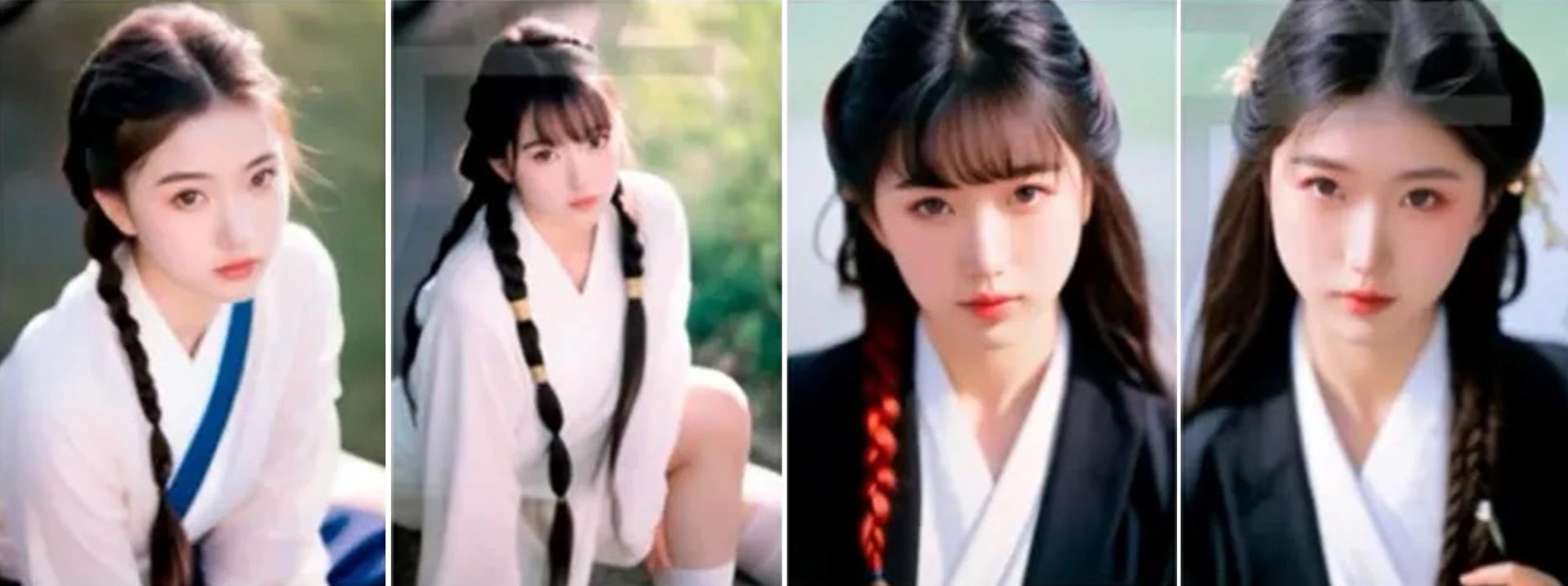


In a landmark decision, a Beijing court has awarded copyright status to an AI-generated image. This could potentially open a new chapter in the murky legal waters of AI art. This landmark judgment starkly contrasts recent decisions in the US, where the Copyright Office has consistently rejected similar claims.
[Related reading: What did AI mean for photographers in 2023?]
The case began when a Chinese artist known as Mr. Li used Stable Diffusion to create a picture of a young woman. He then posted the image on the popular social media platform Xiaohongshu, only to find that a blogger Ms. Liu used it without his permission.
In the lead image, you can see the original AI-generated image of an Asian lady (left), which was at the center of the dispute. On the right are three images generated while creating the final one that was the subject of infringement.
Mr. Li took Ms. Liu to court, alleging copyright infringement. The Beijing Internet Court faced a big question: can an AI-generated image enjoy copyright protection? In a groundbreaking move, Judge Zhu Ge ruled in Mr. Li’s favor, recognizing the image as a copyrightable “intellectual achievement.” The court stated that the AI-generated image created by Mr. Li was an artwork. He had continuously added prompts and adjusted the parameters to create a picture that reflected his “aesthetic choice and personalised judgment,” the South China Morning Post reports.
“From the time when the plaintiff conceived the picture involved in the case to the final selection of the picture involved, the plaintiff has made a certain amount of intellectual investment,” the court ruling says.
Other AI copyright cases
This decision stands in stark contrast to recent developments in the US. In 2023, the US Copyright Office denied copyright protection to an AI-generated graphic novel, “Zarya of the Dawn,” citing the lack of human authorship. Back in March, the US Copyright Office (USCO) said that images created via text-to-image prompts couldn’t be protected under US copyright laws.
In an attempt to solve the AI copyright conundrum, Israeli startup Bria AI teamed up with Getty Images, Alamy, and others last year. They want to take the “responsible” approach to AI imagery and train AI models only on legally licensed stock images.
Implications for artists
While this judgment carries substantial weight, it’s important to note the context. The Beijing Internet Court isn’t China’s highest authority on intellectual property matters. This means that other courts could easily reverse or ignore this decision. Nonetheless, it carries immense symbolic significance, potentially paving the way for similar rulings in the future.
As technology advances and blurs the lines between human and machine creation, the legal position of AI art is only beginning to emerge. Complex issues arise as courts across the globe determine who or what deserves to be called the “author.” But one thing is certain: the legal battle for copyrighted AI work has just begun.
[via PetaPixel; image credits: Xiaohongshu/Stable Diffusion AI]






